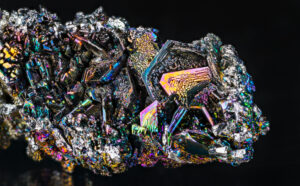
Abrasive flow machining is a finishing process used by many Pennsylvania-based manufacturing companies. It provides an efficient and cost-effective way to remove burrs and other unwanted surface imperfections from a workpiece. The process also smooths and polishes the workpiece to precise specifications. This greatly improves the function, performance, and durability of the finished part.
There are other advantages to choosing the abrasive flow machining process as well:
- Allows for precise and controlled surface finishing.
- Produces consistent and repeatable results.
- It can be used to finish pieces made from a wide range of materials.
- Ideal for parts and components with complex geometries.
- Polishes and deburrs inner surfaces that other finishing methods can’t reach.
- Precision control over the amount of material removed.
- More cost-effective than other finishing methods.
The Role of Abrasive Media in Abrasive Flow Machining
Specially formulated abrasive media are used during the abrasive flow machining process. This abrasive flow media is a specially formulated compound consisting of an abrasive material (such as silicon carbide, aluminum oxide, diamond particles, and boron carbide) mixed with a carrier medium (usually a viscoelastic polymer). Hydraulic pumps extrude the abrasive media along the outer and inner surfaces of a workpiece. This action smoothes and erodes surface blemishes while smoothing and polishing the surfaces of the workpiece.
Abrasive flow media can be customized to order by adjusting the type, size, and concentration of abrasive materials to achieve the desired results for a particular application.
Precisely Formulated Abrasive Extrude Media is Vital to the Finishing Process
Precisely formulated abrasive media is critical to the success of the process. Several factors need to be considered when mixing a batch of abrasive flow media to ensure the finished product performs to expectations. These factors can include:
Workpiece Material
The composition of the workpiece being machined plays a significant role in media formulation. Different workpiece materials require specific abrasives, concentrations, and viscosity to achieve optimal results.
Abrasive type
What abrasive material is used for a project depends on the material being machined and the desired surface finish. Silicon carbide, aluminum oxide, diamond, and cubic boron nitride (CBN) are some of the more commonly used abrasive materials.
Abrasive size
The size of the abrasive particles affects the material removal rate and the surface finish. Abrasive size is based on the specific requirements of the workpiece. Smaller particles tend to produce finer finishes, while larger particles remove material at a faster rate.
Media Viscosity
The abrasive flow media needs to have the right viscosity to carry the abrasive particles effectively. The viscosity of the media determines how well it can flow along and through a workpiece’s inner and outer surface features.
Workpiece Geometry
The complexity of the workpiece’s geometry can affect the media’s ability to flow through and reach all surfaces. Media formulation should consider the workpiece’s shape and features.
Finishing Objectives
The desired surface finish, material removal rate, and other objectives also influence the media formulation process. Different objectives may require adjustments in abrasive type, concentration, and other parameters.
Pennsylvania’s Number One Source for Precisely Formulated Abrasive Flow Media
Don’t mix your abrasive flow media using trial and error. For best results, speak to the abrasive flow machining experts at Deburring & Finishing Technologies. Deburring & Finishing Technologies has been a leading provider of abrasive flow media and abrasive flow machining services in Pennsylvania since 2009.
We offer more than 50 different types of abrasive flow media and can re-engineer our abrasive flow media to match the unique demands of any abrasive flow machining job. You can contact Deburring & Finishing Technologies through our website or call us at (412) 849-1522. Our team of highly experienced engineers and specialists is here to ensure you get the right abrasive flow media for your job.
